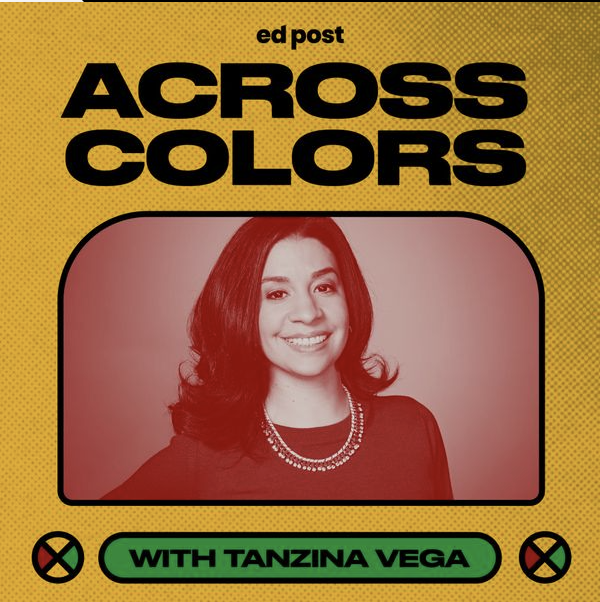
Sep 7, 2022 10:19:58 AM
Welcome to Ed Post Insight. This week, we’re launching an eye-opening podcast, Across Colors, that will take you on a journey across the country to meet parents who are stepping up not just for their own children, but for all the children in their communities. Your tour guide on this journey will be Tanzina Vega, a New York City mom who also happens to be one of the nation’s foremost journalists exploring inequality.
Public education in the United States rests on a fundamental paradox: we view it as “the great equalizer” and the pathway to upward mobility, yet it is largely funded by local property taxes and zoned within economically and racially segregated local communities. This combination means those with the most wealth and privilege get access to the best public schools, and those with the least, get the worst.
Over the last 40 years, U.S. economic inequality has skyrocketed, with dramatic effects on parenting. Whether you call it helicopter parenting, intensive parenting or concerted cultivation, more affluent parents–who are more likely to be white–can invest much more time and money into enriching their children. Piano lessons, coding camps, expensive preschool, nannies–you name it. And all of this investment appears to be paying off. We now face an income-based achievement gap that surpasses the race-based differences in academic achievement society has tried to address since the 1960s.
When parents see the path to economic success narrowing for their children, their anxiety rises. It becomes harder to see the bigger picture of equity and success for all kids, and easier to get tunnel vision about making sure “my kid” gets what they need to succeed in a competitive, zero-sum world. That’s why we see such furor over “Nice White Parents”--no matter their race or ethnicity, but yes, predominantly white–resisting efforts to open up more opportunity for Black, Brown and other kids who aren’t “their” kids.
Even the efforts parents think are making a school “better” can exclude kids who aren’t their own. Whether by supporting tracking, setting up exclusive fundraising systems or simply assuming the public school down the block can’t possibly be any good, parents who are white and affluent have the power to shape not only their children’s outcomes, but the outcomes of all the children their decisions touch.
These are the parents who make headlines. What we hear much less about are the parents–and their allies inside and outside schools–who are pushing to make schools better places for all kids to learn and grow. Those parents, too, come in all races and ethnicities, but Across Colors has chosen to focus largely on parents of color, while making space to talk with white parents who are going against the grain to create better for all kids.
The first episode of Across Colors drops on September 8. You can find it wherever you get your podcasts. Give it a listen!
How are you working to make public schools more welcoming and more equitable to all kids? Tell us your story! Email me a short note at MKelleher@brightbeam.org that shows how you are working to end racial inequality in schools. Your story could be featured in a future newsletter, or on Ed Post!
Maureen Kelleher is Editorial Director at Future Ed. She was formerly Editorial Partner at Ed Post and is a veteran education reporter, a former high school English teacher, and also the proud mom of an elementary student in Chicago Public Schools. Her work has been published across the education world, from Education Week to the Center for American Progress. Between 1998 and 2006 she was an associate editor at Catalyst Chicago, the go-to magazine covering Chicago’s public schools. There, her reporting won awards from the Annie E. Casey Foundation, the International Reading Association and the Society for Professional Journalists.
The story you tell yourself about your own math ability tends to become true. This isn’t some Oprah aphorism about attracting what you want from the universe. Well, I guess it kind of is, but...
If you have a child with disabilities, you’re not alone: According to the latest data, over 7 million American schoolchildren — 14% of all students ages 3-21 — are classified as eligible for special...
The fight for educational equity has never been just about schools. The real North Star for this work is providing opportunities for each child to thrive into adulthood. This means that our advocacy...
Your donations support the voices who challenge decision makers to provide the learning opportunities all children need to thrive.
Ed Post is the flagship website platform of brightbeam, a 501(c3) network of education activists and influencers demanding a better education and a brighter future for every child.
© 2020–2024 brightbeam. All rights reserved.
Leave a Comment